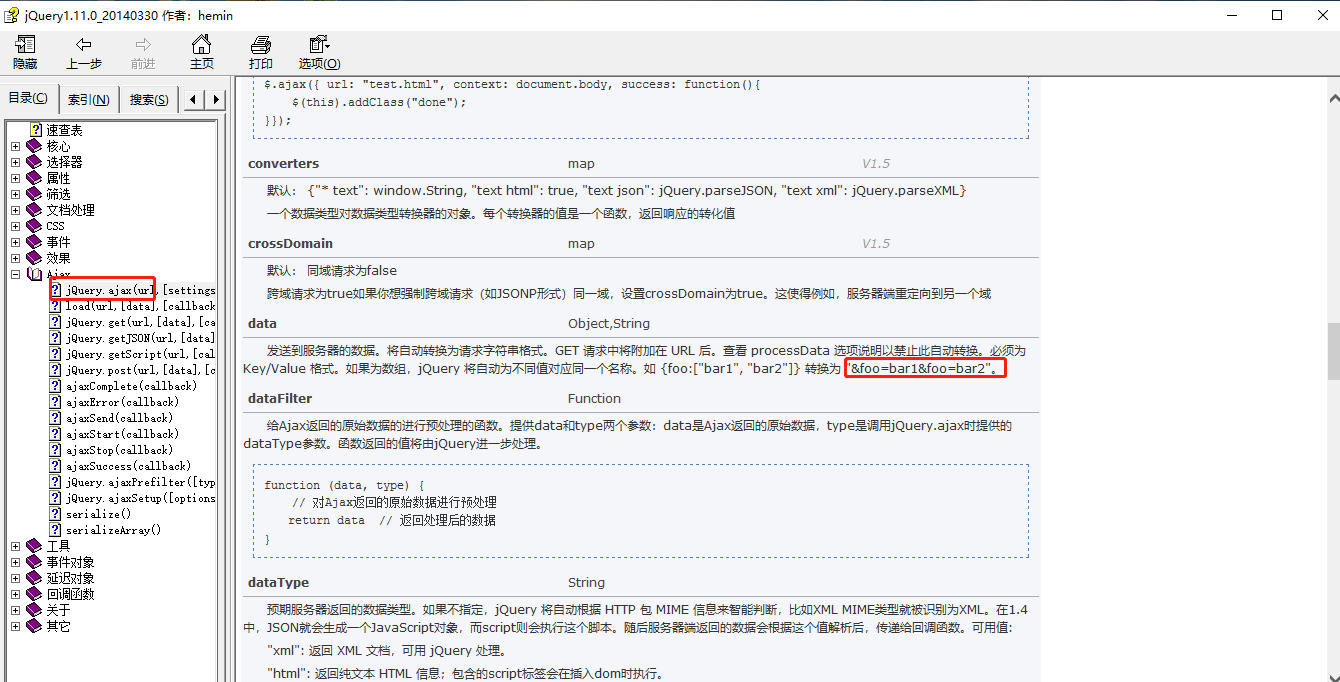mybatis动态批量新增,更新,删除(spring+springmvc+mybatis+maven+mysql)
1.链接mysql的文件加上批处理的配置 [批量新增和更新可以参照多个对象批量删除,这个只有批量删除的例子,但批量新增和更新只有mapper.xml文件不一样,只需要单独的更新和新增方法就可以,jsp页面多个对象传值都是一样的实现方式]
jdbc.user=root
jdbc.password=root
jdbc.url=jdbc:mysql://localhost:3306/work_project?allowMultiQueries=true&rewriteBatchedStatements=true&useUnicode=true&characterEncoding=utf8
jdbc.driver=com.mysql.jdbc.Driver
2.获取jsp文件里多个对象的值,异步ajax提交。(两种方式实现批量删除,一个是只有id的数组传值,另一个是多个对象传值[批量更新和新增也可参照这个])
2.1 jsp页面动态拼接函数(我这个例子是把对象的多个属性值都放到一个input里了,批量更新和新增可以把单个的属性放到每一行td的input标签里)
var html = ""; $.each(pageData, function(i, n) { html += '<tr>'; html += ' <td>' + (i + 1) + '</td>'; html += ' <td><input type="checkbox" id="' + n.id + '" name="' + n.username + '" email="' + n.email + '" loginacct="' + n.loginacct + '"></td>'; //这里是批量删除的关键 html += ' <td>' + n.loginacct + '</td>'; html += ' <td>' + n.username + '</td>'; html += ' <td>' + n.email + '</td>'; html += ' <td>'; html += ' <button type="button" class="btn btn-success btn-xs"><i class=" glyphicon glyphicon-check"></i></button>'; html += ' <button type="button" class="btn btn-primary btn-xs" onclick="window.location.href=\'${CWF_PATH}/user/toUpdate.htm?id=' + n.id + '\'"><i class=" glyphicon glyphicon-pencil"></i></button>'; html += ' <button type="button" class="btn btn-danger btn-xs" onclick="deleteUser(' + n.id + ',\'' + n.username + '\')"><i class=" glyphicon glyphicon-remove"></i></button>'; html += ' </td>'; html += '</tr>'; }); $("#tbodyConcat").html(html);
2.1.2 ajax异步提交,方式1(只有id的数组传值)。

function deleteBatch() { var selectedCheckBox = $("#tbodyConcat input:checked"); //根据选中的checkbox取得所有要删除的数据的集合 if (selectedCheckBox.length <= 0) { layer.msg("请选择要删除的数据!", { time: 1000, icon: 6, shift: 6 }); return false; } var idStr = ""; //数组方式,定义传值的变量(根据ajax的data属性设置的,具体看上边的图) $.each(selectedCheckBox, function(i, n) { //数组方式 if (0 != i) { idStr += "&"; } idStr += "ids=" + n.id; //后台必须以ids接收(这里如果是abc,后台接收变量也要是abc) }); layer.confirm("确认要删除这些用户吗", { icon: 3, title: "提示" }, function(confirmIndex) { layer.close(confirmIndex); $.ajax({ type: "POST", contentType: 'application/json;charset=utf-8', //设置请求头信息 dataType: "json", data: idStr, //数组方式 url: "${CWF_PATH}/user/deleteBatch.do", beforeSend: function() { return true; }, success: function(data) { if (data.success) { window.location.href = "${CWF_PATH}/user/toIndex.htm"; } else { layer.msg(data.message, { time: 1000, icon: 6, shift: 6 }); } }, errot: function() { layer.msg("删除数据失败!", { time: 1000, icon: 6, shift: 6 }); } }); }, function(confirmIndex) { layer.close(confirmIndex); } ); }
java后台deleteBatch方法(controller文件,这里service和dao不展示,只展示mapper.xml文件的方法)
//注意这里的ids必须和jsp页面[idStr += "ids="+n.id;]的ids一致, //而不是ajax的[data:idStr,]的idStr @ResponseBody@RequestMapping("/deleteBatch") public Object deleteBatch(Integer[] ids) { AjaxResult result = new AjaxResult(); try { int count = userService.deleteBatch(ids); if (count == ids.length) { result.setSuccess(true); result.setMessage("删除成功"); } } catch(Exception e) { result.setSuccess(false); result.setMessage("删除失败"); e.printStackTrace(); } return result; }
mapper.xml文件(int deleteBatchUser(@Param("ids") Integer[] id); // collection="ids")
<?xml version="1.0" encoding="utf-8"?> <!-- collection="array" 如果参数是数组,采用默认"array"名你获取数组参数. collection="list" 如果参数是集合,采用默认"list"名你获取集合参数. collection="具体名可以根据dao接口的@Param设置" 例如:int deleteBatchUser(@Param("ids") Integer[] id); // collection="ids"--> <delete id="deleteBatch">delete from t_user where id in <foreach collection="array" item="id" separator="," open="(" close=")">#{id}</foreach> </delete>
2.2多个对象传值方式
2.2.1 jsp页面动态拼接函数(我这个例子是把对象的多个属性值都放到一个input里了,批量更新和新增可以把单个的属性放到每一行td的input标签里)
var html = ""; $.each(pageData, function(i, n) { html += '<tr>'; html += ' <td>' + (i + 1) + '</td>'; html += ' <td><input type="checkbox" id="' + n.id + '" name="' + n.username + '" email="' + n.email + '" loginacct="' + n.loginacct + '"></td>'; //这里是批量删除的关键 html += ' <td>' + n.loginacct + '</td>'; html += ' <td>' + n.username + '</td>'; html += ' <td>' + n.email + '</td>'; html += ' <td>'; html += ' <button type="button" class="btn btn-success btn-xs"><i class=" glyphicon glyphicon-check"></i></button>'; html += ' <button type="button" class="btn btn-primary btn-xs" onclick="window.location.href=\'${CWF_PATH}/user/toUpdate.htm?id=' + n.id + '\'"><i class=" glyphicon glyphicon-pencil"></i></button>'; html += ' <button type="button" class="btn btn-danger btn-xs" onclick="deleteUser(' + n.id + ',\'' + n.username + '\')"><i class=" glyphicon glyphicon-remove"></i></button>'; html += ' </td>'; html += '</tr>'; }); $("#tbodyConcat").html(html);
2.2.2 ajax异步提交,方式2(多个对象的数组传值,批量更新和新增可以参照这个)。
function deleteBatch() { var selectedCheckBox = $("#tbodyConcat input:checked"); //根据选中的checkbox取得要删除(更新和新增)的集合 if (selectedCheckBox.length <= 0) { layer.msg("请选择要删除的数据!", { time: 1000, icon: 6, shift: 6 }); return false; } var jsonData = new Array(); //定义要删除(更新和新增)数据的数组,将页面的多个对象数据存放到这个数组 //循环集合,根据attr取得input里的各个属性值。(如果是新增和修改,需要根据取得的当前对象去获取其他input的text属性的值:可以用jQuery的parent加fing方式去获取,具体可以去百度) $.each(selectedCheckBox, function(i, n) { var that = this; //把取得的多个对象的值push到数组里,注意这里的key要和User实体类的属性一致 jsonData.push({ "id": $(that).attr("id"), "loginacct": $(that).attr("loginacct"), "username": $(that).attr("name"), "email": $(that).attr("email") }); }); layer.confirm("确认要删除这些用户吗", { icon: 3, title: "提示" }, function(confirmIndex) { layer.close(confirmIndex); $.ajax({ type: "POST", contentType: 'application/json;charset=utf-8', //设置请求头信息 dataType: "json", data: JSON.stringify(jsonData), //将Json对象序列化成Json字符串,JSON.stringify()原生态方法 url: "${CWF_PATH}/user/deleteBatch.do", beforeSend: function() { return true; }, success: function(data) { if (data.success) { window.location.href = "${CWF_PATH}/user/toIndex.htm"; } else { layer.msg(data.message, { time: 1000, icon: 6, shift: 6 }); } }, errot: function() { layer.msg("删除数据失败!", { time: 1000, icon: 6, shift: 6 }); } }); }, function(confirmIndex) { layer.close(confirmIndex); } ); }
java后台deleteBatch方法(controller文件,这里service和dao不展示,只展示mapper.xml文件的方法)
注意接收参数的地方要加 @RequestBody
//前台数组传输 @ResponseBody @RequestMapping("/deleteBatch") public Object deleteBatch(@RequestBody List<User> users){ AjaxResult result = new AjaxResult(); try { int count = userService.deleteBatchByList(users); if(count == users.size()){ result.setSuccess(true); result.setMessage("批量删除成功"); } } catch (Exception e) { result.setSuccess(false); result.setMessage("批量删除失败"); e.printStackTrace(); } return result; }
mapper.xml文件的方法(批量更新和新增的话只需要把insert和update的方法加上就可以了,也是用foreach的方式,不会的去百度)
mapper接口 int deleteBatchByList(List<User> users);
<delete id="deleteBatchByList">delete from t_user where id in <foreach collection="list" item="user" separator="," open="(" close=")">#{user.id}</foreach> </delete>
=========新增Mapper.xm文件方法例子(写法不同,配置文件不同)================================
****注意如果不都写在foreach里,数据库连接文件可以不加allowMultiQueries=true&rewriteBatchedStatements=true
****注意如果写在都foreach里, 数据库连接文件必须加allowMultiQueries=true&rewriteBatchedStatements=true
上边的改进版(先判断在更新)
<foreach collection="list" item="user" separator=";">insert into t_user_role <trim prefix="(" suffix=")" suffixOverrides=","> <if test="user.id != null">userid,</if> <if test="user.roleId != null">roleid,</if> </trim> values <trim prefix="(" suffix=")" suffixOverrides=","> <if test="user.id != null">#{user.id,jdbcType=INTEGER},</if> <if test="user.roleId != null">#{user.roleId,jdbcType=INTEGER}</if> </trim> </foreach>
作者:明
出处:https://www.cnblogs.com/konglxblog//
版权:本文版权归作者和博客园共有
转载:欢迎转载,文章中请给出原文连接,此文章仅为个人知识学习分享,否则必究法律责任

